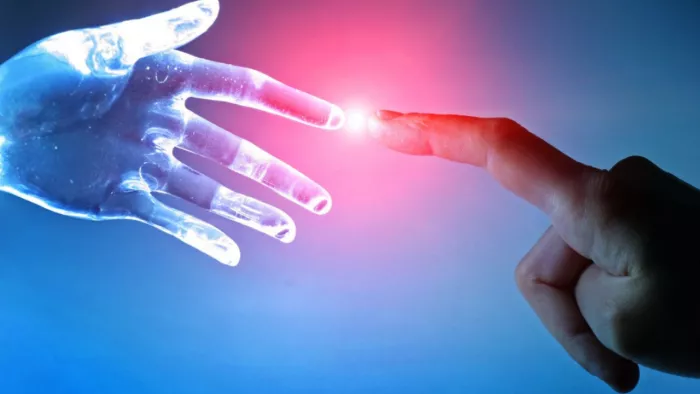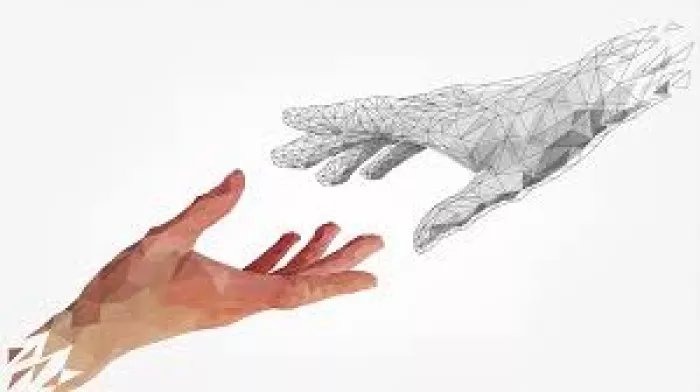
We live in the age of digital everything. Automation drives our customer service, AI pens our emails, chatbots greet us on websites, and algorithms dictate our news. Yet, strangely, people have never felt so disconnected.
Why is that?
Because efficiency alone can’t comfort an anxious customer. Speed can’t replace comfort during confusion. Automation can answer a question, but not always the one you're asking; not always in the way you need.
A 2024 survey by SuperAGI found that 71% of consumers expect personalized interactions, and 76% feel frustrated when these aren’t met.1 That frustration doesn’t stem from efficiency, but from the absence of emotional engagement.
The Proof Is in the Preference
Multiple studies say: people still prefer humans in crucial moments of connection.

Take customer service. A Five9 study from 2024 revealed 75% of consumers prefer speaking to a real human rather than using AI for support.2 Even for younger generations, a group often imagined as tech-obsessed and only 66% of Gen Zers prefer human interactions, compared to 86% of Baby Boomers.
What does this tell us? Even our youngest are not ready to barter away empathy, clarity, or trust.
Empathy in the Digital Economy
Empathy, once considered soft, is now hard business sense.
Research from Gartner and SuperAGI found that incorporating emotional intelligence in AI systems increased customer satisfaction by up to 30%.
But here’s the kicker: emotional recognition tools still lag behind human intuition. The rise of affective computing or AI that interprets human emotions is transformative yet imperfect.4 Machines detect patterns, but humans listen, adapt, and respond not only to words but to the silences in between.
The Hybrid Model
The future isn't AI vs. humans; it’s about collaboration.
Infosys, Microsoft, and Salesforce are among companies promoting hybrid customer support models—a system where AI handles routine queries, freeing up human agents for high-stakes tasks such as problem-solving or conflict resolution.
This approach delivers:
Speed, when people just want basic answers.
Empathy, when issues are complex or emotional.
SuperAGI’s own research shows a 25% increase in customer satisfaction when these two worlds intersect.^3
Real Costs of Ignoring the Human Touch
Ignoring the need for human connection isn’t just cold, it’s costly.
Infuriating a customer on their worst day? You just lost their loyalty. A negative service experience can erode trust fast, and data shows that even one bad interaction is enough to push 59% of consumers away.
Meanwhile, human service outperforms AI in trust scores:
Human service ranked higher in understanding need: 61%
Thorough explanations: 53%
Lower frustration: 52%5
These are not just percentages. These are human emotions we ignore at our peril.
Rebuilding Trust in a Distrustful World
Algorithmic transparency matters, but so does the presence of real human beings.
Studies show automation bias (where we over-rely on tech) causes reduced vigilance and trust when mistakes occur. Conversely, algorithm aversion is growing, people often reject algorithmic advice even when it's objectively more accurate than human judgment.
Human intervention isn’t just preferred, it’s essential to build trust when trust is fragile.
The Human Touch as Competitive Edge
In a sea of automation, empathy is scarce.
That scarcity makes it powerful.

Brands focusing on relationships—not just transactions are rewarded in returns. Those who understand, adapt, and care even through digital channels will win.
Customers who feel understood become loyal. Loyal consumers become advocates. That's real growth, not just ROI.
Final Thoughts
The digital world isn’t removing human touch, it’s demanding it in more creative ways. It’s not about writing handwritten notes, but about creating moments of connection. It’s not about replacing people with algorithms but using technology to keep people together.
Because no matter how intelligent our devices become, they can't sit with us during grief. They can't genuinely congratulate us for our wins. They can’t say “I understand” with all the nuance and complexity that sentence carries.
And that's why, now more than ever, human touch matters.




Comments